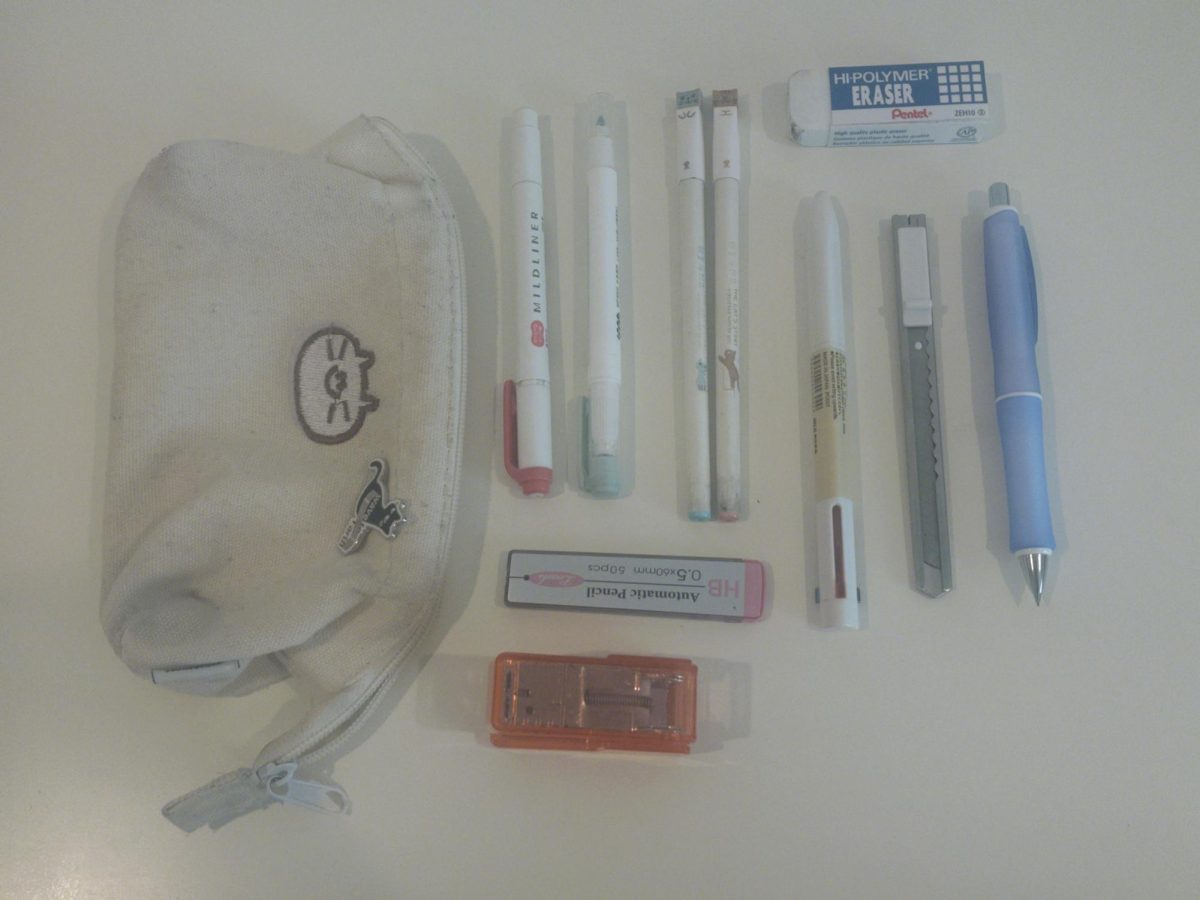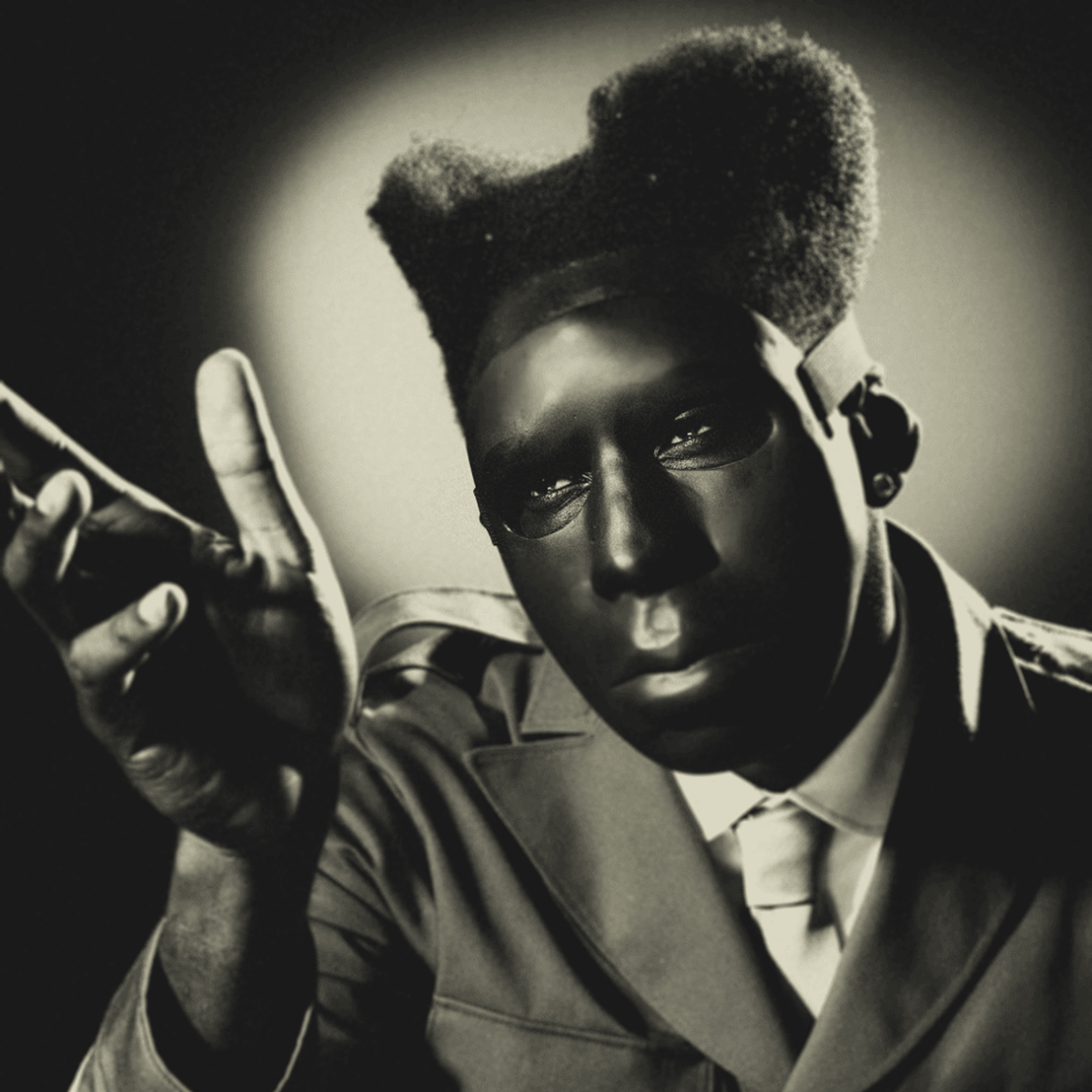When Tyler, the Creator released his debut album “Bastard” on Christmas day in 2009, he was an 18-year-old rebellious college dropout rapping dark and offensive lyrics to “piss off old white dudes.”
Over the next dozen years, Tyler Gregory Okonma went on to release an album every other year, developing a unique set of traditions within his soundscape that grew alongside him as a person — edgy, disturbing bars in “Bastard” turned into the deeply personal introspection of “IGOR,” which further morphed into “CALL ME IF YOU GET LOST” and its versatile blend of complexity and catchiness.
Tyler’s eighth full-length album “CHROMAKOPIA,” released on Oct. 28, and its 14 songs are, in every way, a destination of the artist’s 15-year-long musical and personal journey. Marking the beginning of a new era in his career, the mix of energetic rap and emotional ballads in “CHROMAKOPIA” tell a complex, vulnerable story of someone confronting the loss of their youth and its consequences.
Pressing play on the album immediately reveals depth and intention, and throughout its 53-minute runtime, each song adds new layers of meaning, making each repeat listen better and better.
Tyler’s alter ego in the album, St. Chroma, is named after Chroma the Great, a character from the famous children’s book “The Phantom Tollbooth” who conducts an orchestra that brings color to a fantastical world. “CHROMAKOPIA” seems to follow a similar idea — Tyler’s mother, Bonita Smith, delivers the opening lines of the album, a message to the artist and possibly even the listener: “You are the light.”
Tyler quickly steps into his persona in the album’s opening statement, also titled “St. Chroma,” a 4-minute crescendo into the world of color the rest of the songs bring. Backed by a steady marching rhythm, he is joined by singer Daniel Caesar’s ethereal vocal melodies as Tyler raps about the world he’s about to build for the listener.
The next song, “Rah Tah Tah,” is an unabashed display of Tyler’s lyricism — he raps “Crib so damn big, I need a diaper and a sippy cup,” one of many cheesy lines that nevertheless adds to the confident, flashy tone of the song, with him later declaring that he’s “The biggest out the city after Kenny [Kendrick Lamar].”
Transitioning into “Noid,” the album’s single, Tyler begins to shift the message of each song away from the familiar, impolite lyrics of “Rah Tah Tah.” Sampling a 1977 song from the Zambian band Ngozi Family, his lyrics tackle the paranoia and pressures that come with fame, criticizing fans who tap his phone calls or stalk him: “Privacy? Huh, yeah right, I got a better shot in the NBA.”
While “Noid” combines a heavy rock beat with traditional African music, “Darling, I” blends two genres Tyler is well-versed in — R&B and hip-hop — to create an endlessly catchy tune exploring his inability to commit to loving a partner, instead finding fulfillment through music.
The album continues to examine deeper layers of Tyler’s history, personality and culture in its next three songs. He raps about a hypothetical pregnancy scare from both his and his partner’s perspective in “Hey Jane” and reflects on the discrimination he faced due to his hair texture and race in “I Killed You,” which also features fleeting vocals from Childish Gambino. “Judge Judy” examines the complexities of sexuality as Tyler tells the story of his experiences with a recently passed former lover, and although it’s rich in meaning, its slower pace and weaker vocals make it my least favorite track on the album.
In the latter half of “CHROMAKOPIA,” each song begins to take more and more risks, with each one paying off just as much as the last. “Sticky” is unapologetic and boisterous, featuring verses from GloRilla, Sexxy Red and Lil Wayne each showing off their popularity and vocal aggression.
And as much as “Sticky” is crude and showy, “Take Your Mask Off,” my favorite song on the album, is even more introspective and hopeful. Daniel Caesar returns to deliver beautiful harmonies on a heavenly chorus, and each verse of the densely packed track is full of intricate storytelling, all following characters who hide or lose their identities. Tyler raps about a middle-class child who, instead of going to college, becomes a thug and faces jail time; a preacher hiding his homosexuality behind his religion; and a mother in postpartum who loses her sense of direction, urging each person to sit down and “talk about it.”
The song takes an even deeper layer of meaning when Tyler turns the script onto himself, criticizing the inauthenticity he has shown throughout his career — whether through his high-end clothing and fragrance brands or the flashy personas he flaunts in his albums — and ends the song urging himself to take his own mask off, marking a significant turning point in the album.
From there on, with the exceptions of “Thought I Was Dead” and “Balloon,” both of which feature lively rap performances from Tyler alongside guests ScHoolboy Q and Doechii, the album fully shifts toward the emotional, in particular with “Tomorrow” and “Like Him.”
In “Tomorrow,” Tyler is forced to confront the loss of his youth and his mother’s aging, wondering if his accomplishments will truly give him happiness as he is forced to choose between finding a long-term partner and prioritizing short-term pleasures.
Even more devastating is “Like Him,” where Tyler lets out all his pent-up emotions about his absent father, a “ghost” he has been chasing throughout his life. The song becomes increasingly chaotic and mesmerizing as Tyler struggles with reconciling his identity with his father’s; he asks “Do I look like him?” over and over, finally asserting his own individuality with the answer: “I don’t look like him.”
Tyler’s reflections come to a close with “I Hope You Find Your Way Home,” a slow but heavy song backed by unrelenting piano and synth tracks that features his dense lyricism in one final verse, and the album closes with his mother once again urging him to “keep shining.”
“CHROMAKOPIA” is the journey of an artist trying to move on from their past, that of their career and that of their life. In telling that story, Tyler, the Creator fuses a decade and a half of growth to create a project that stands as a testament to his unquestionable talent, no matter your opinion on his preceding discography. Even its weakest moments are impressive accomplishments, so ultimately, I rate “CHROMAKOPIA” 4.75 out of 5 Falcons.




























